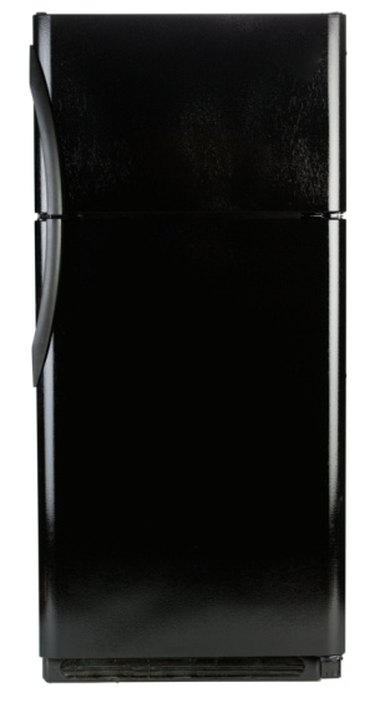
It's frustrating to open the refrigerator only to find that your fresh vegetables are frozen. Some vegetables are no longer edible when frozen, especially if they have not been processed to be frozen. Determine why your fridge is freezing the vegetables in order to find a solution.
Wrong Location
Video of the Day
One reason for the vegetables freezing may be that you have put them in the wrong location of the refrigerator. To determine the best place in your particular fridge for storing the vegetables, read through the owner's manual that came with your appliance. Many times the different compartments of the fridge are labeled as well. Look on the drawers and doors to see if any of them are labeled for vegetables. If they are, you can often adjust the air that comes into the compartment to keep your vegetables at the ideal temperature.
Video of the Day
Refrigerator Temperature
Adjust the temperature of your refrigerator if your vegetables keep freezing. The optimal temperature for your vegetables is between 32 and 40 degrees Fahrenheit, depending on the vegetable. Make sure your refrigerator is set within this temperature range. Do not set it above 40 degrees Fahrenheit or below 32 degrees Fahrenheit. Test the temperature of your fridge with a thermometer. Check the setting on the fridge to see where it is set. Adjust the temperature accordingly.
Freezer Temperature
If you have your fresh vegetables in a refrigerator/freezer combination, the temperature of the freezer may be the cause of your frozen vegetables as well. Many freezers blow cold air into the fridge side. If the freezer temperature is set too low, then it will cause the fridge to be too cold. Again, use a thermometer to test the temperature of the freezer. Adjust the control accordingly.
Defrosting
Try defrosting your refrigerator and freezer to see if it solves the problem. Sometimes the ducts get blocked and the air does not circulate as it should. Remove all the food from both the fridge and freezer parts, if applicable. Allow the fridge to sit empty for at least 24 hours. Give the fridge a good cleaning and then plug it back in. After a few hours, test the temperature of the fridge to make sure it is in the proper range. Replace the food.
New Fridge
If your refrigerator continues to freeze your fresh vegetables, it may be time for a new fridge. If you know that you put the vegetables in the correct compartment and you have tested the temperatures of both the fridge and the freezer, it may be that your refrigerator is no longer working properly.